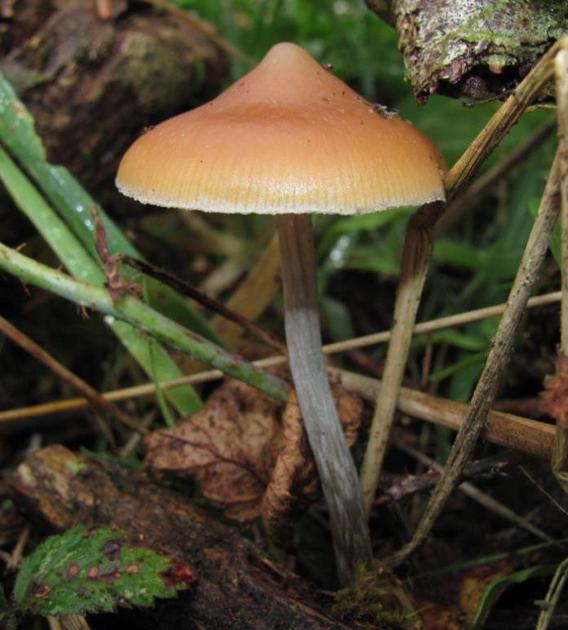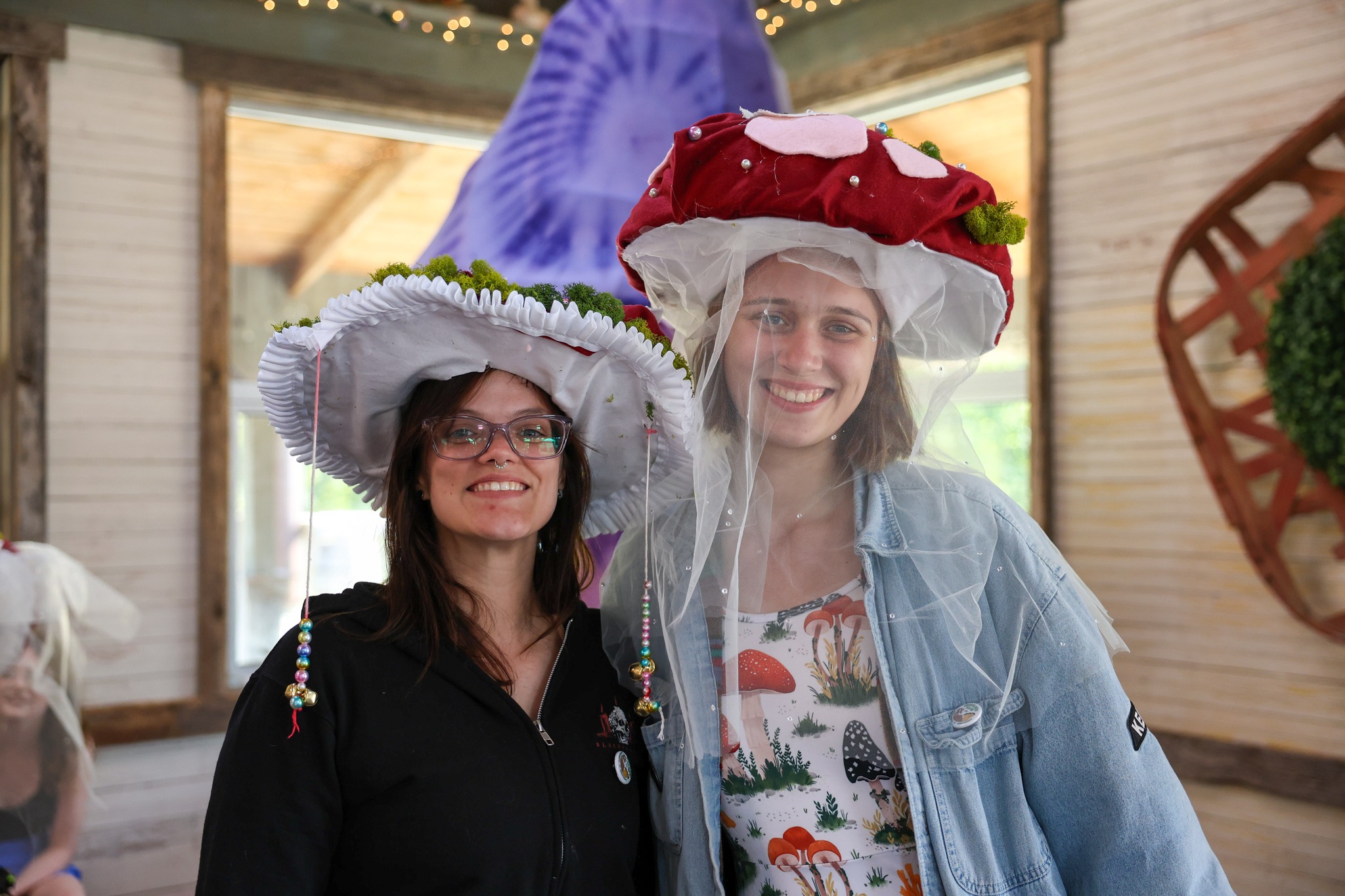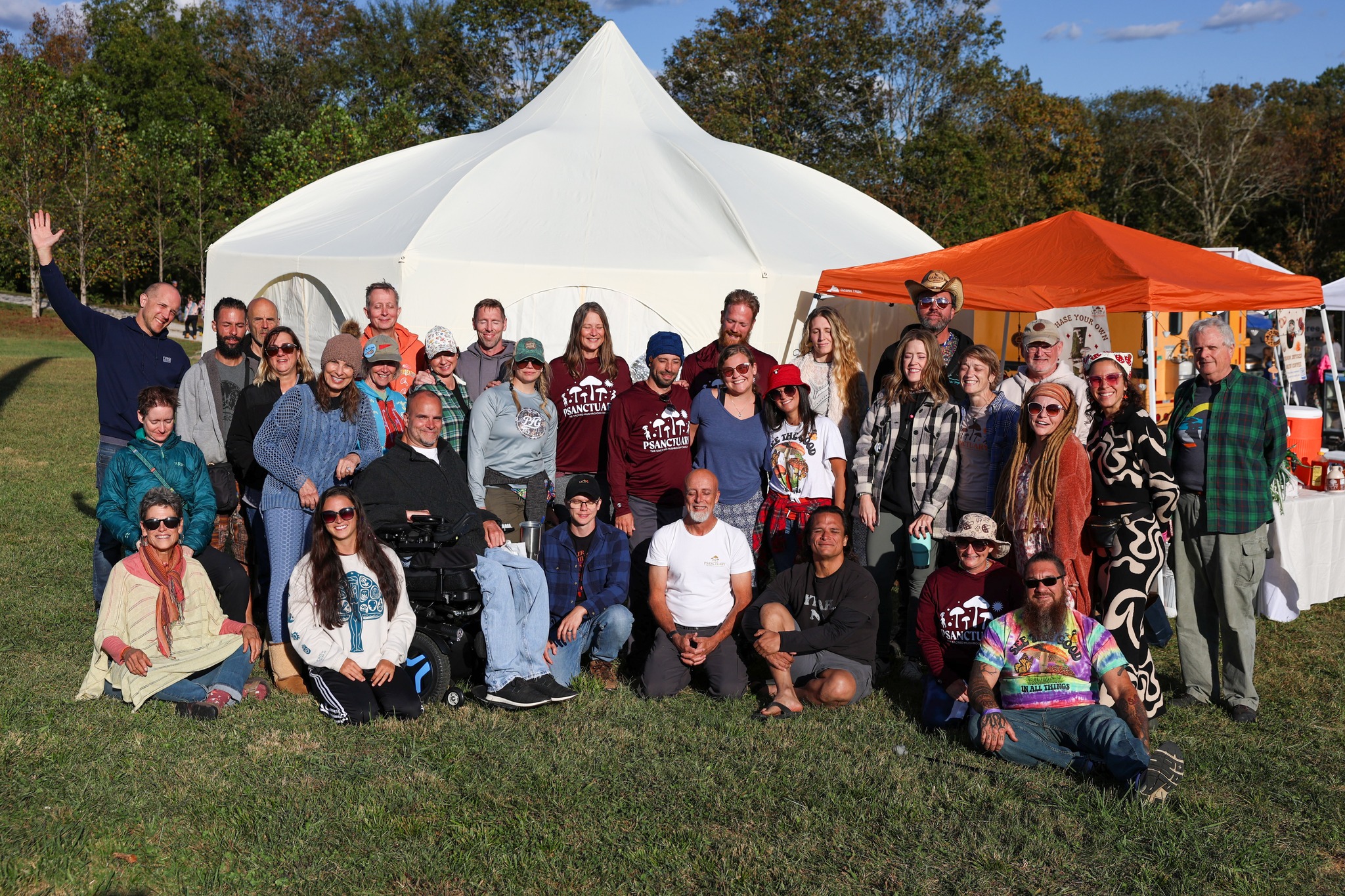
The Roman libery cap depicted on a medal from 1783.

Psilocybe azurescens is one of the magic mushrooms that can be found in the Pacific Northwestern region of the United States.
After the massive success of R. Gordon Wasson’s publication in LIFE Magazine, people had enough information to identify magic mushrooms in their home countries. The identification of the mushroom species allowed people to recognize them growing in other countries, including their own (Allen & Gartz, 1977). One notable Western discovery is Psilocybe semilanceata in Great Britain, locally known as “Liberty Caps.” The psilocybin-containing mushroom bears a striking resemblance to the famous ancient Roman symbol for freedom. This mushroom became a symbol for hippies and other social deviants of Britain, appearing in art and at music festivals (Omissi, 2016). Now, we know that there are 22 psilocybin-containing species in the United States and Canada and 16 in Europe (Guzman et. Al. 1998). There is a flourishing online community in which mycophiles share pictures of the brown mushrooms they find in the woods, hoping to confirm them as psilocybin-containing species. Pictures are often shared with the caption, “are these libs?” (Omissi, 2016).
As with other traditional plant medicines obtained by the West, there has been a significant attempt to capitalize on it. Many people take offense at the effort to standardize, synthesize, and profit from ancient plant medicines, especially one that is still in use by indigenous cultures. Others support the great strides that have occurred scientifically thanks to corporate interest in the mushroom (Devenot et. al. 2022). Strides in scientific research on psilocybin has implications for medicinal and therapeutic use as well as the potential for legalization (Sommano et. al. 2022). Devenot and his colleagues (2022) warn of the dangers of “psychedelic capitalism” including desacralization, removing the mushrooms from their cultural context, integrating psychedelic experience into mainstream capitalist values and beliefs, and much more.
Mushroom festivals are a phenomenon becoming increasingly popular in the United States as sites of community-building for mycophiles. The country’s largest festival, Mycofest, was started in 2014 by William Padilla Brown, founder of the company Mycosymbiotics. Unlike the traditional small-town events where focus is largely on gourmet mushrooms, this festival also makes art and community a central focus (Mycosymbiotics). More festivals are popping up that mirror Mycofest, such as the Kentucky Mushroom Festival, which had its first event in 2023. Many groups attended this festival including artists, foragers, scientists, hippies, and even a unique group called the “Psanctuary.” The Psanctuary is a church with a non-dogmatic belief system centered around the use of psilocybin-containing mushrooms as sacrament (Psanctuary 2023). In a personal interview with a member of the church, they showed reverence and respect for their indigenous precedents. “I don’t think any culture’s toolbox should be limited to just those tools. Because we’re all human, we all need to heal,” the member said when asked about the difficult relationship held between Western and Mazatec culture.
Allen, J., and Gartz, J. (1977). Magic mushrooms in some third world countries. Ethnomycological Journals Sacred Mushroom Studies, 6. https://www.researchgate.net/publication/336281368_Magic_Mushrooms_in_Some_Third_World_Countries
Devonot, N., Conner, T., & Doyle, R. (2022). Dark side of the shroom: erasing indigenous and counterculture wisdoms with psychedelic capitalism, and the open source alternative. Anthropology of Consciousness, 33(2), 476-505.
MycoSymbiotics Mushroom & Art Festival. (n.d.). MycoSymbiotics Mushroom & Art Festival. https://www.mycofest.net/
Omissi, A. (2016). The cap of liberty: Roman slavery, cultural memory, and magic mushrooms. Folklore, 127(3), 270-285. https://www.jstor.org/stable/26445771
Psanctuary member, personal interview, October 7, 2023.
Sommano, S. R., Suksathan, R., Sombat, T., Seehanam, P., Sirilun, S., Ruksiriwanich, W., Wangtueai, S., Leksawasdi, N. (2022). Novel perspective of medicinal mushroom cultivations: A review case for ‘magic’ mushrooms. Agronomy, 12(3185). Doi.org/10.3390/agronomy12123185

Mycophiles dressed up at the Kentucky Mushroom Festival.

Members of the Psanctuary psilocybin church at the Kentucky Mushroom Festival.